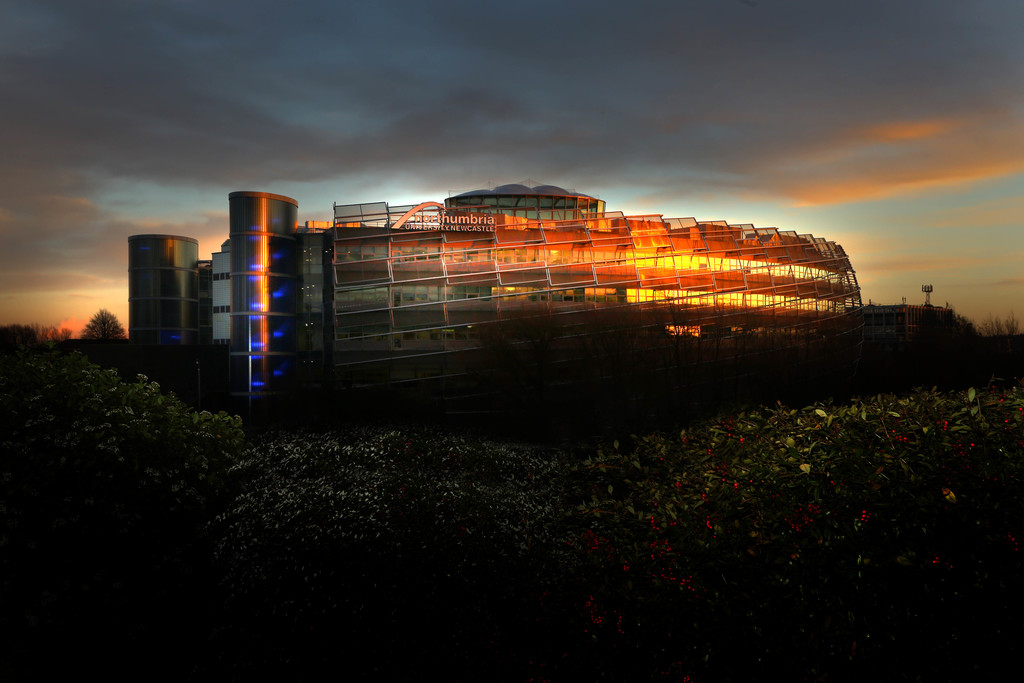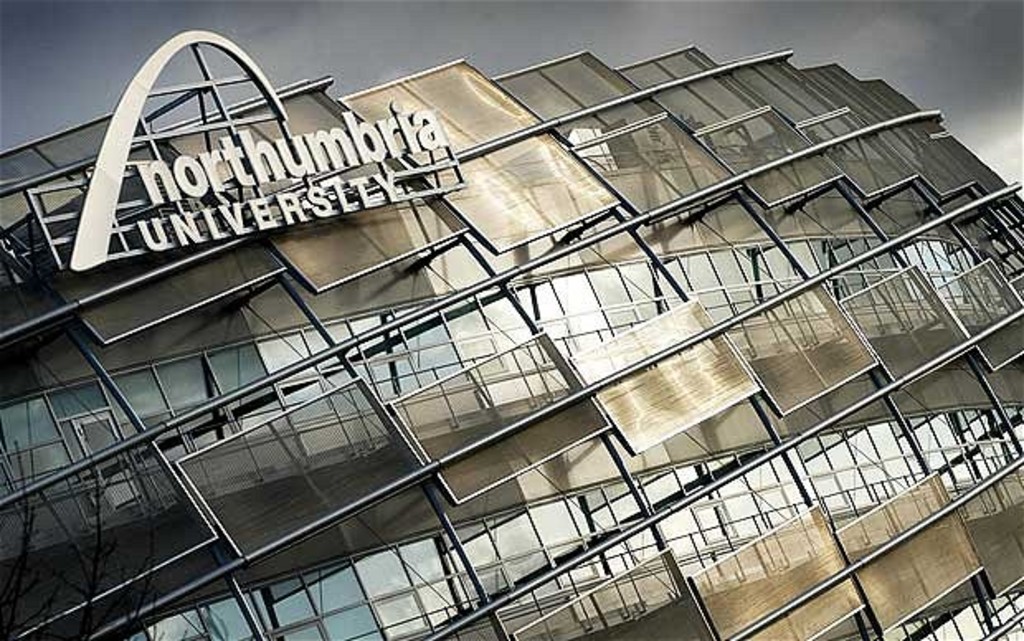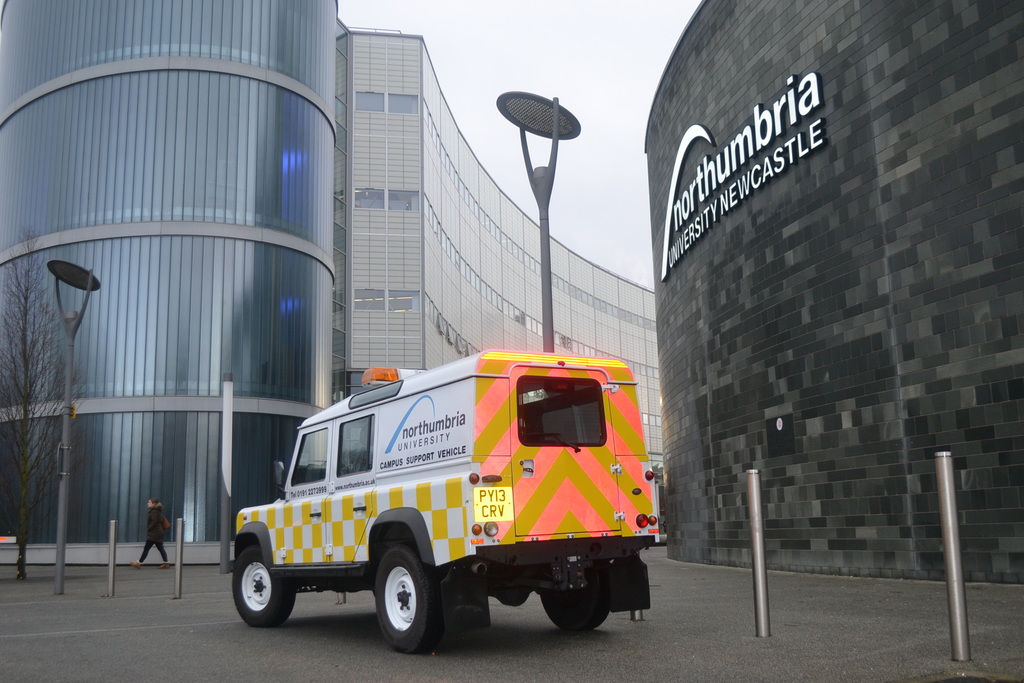
Brian Sims
Editor

Brian Sims
Editor
Northumbria University has invested in the latest advances in mobile enabled command and control technology that are improving campus security.
THE SECURITY department at Northumbria University has been transformed over the last five years from a purely tactical operation – with team members busy dealing with the day-to-day challenges familiar in the sector – to a more strategic focus supporting the institution’s global objectives, its brand and its future growth.
This alignment of short term operational and longer-term strategic needs is being led by head of security, John Anderson, and has been enabled using new technology, including the latest developments in mobile distributed command and control software.
While Northumbria is not alone in this – similar mobile-enabled solutions are being adopted by campuses globally – its proactive approach to using the technology is paying dividends.
In particular, says Anderson, the University’s international reputation, the satisfaction and well-being of students and responsive customer service has become as much a priority for the security and safety team as traditional crime prevention and site monitoring duties.
“The University has a duty of care to students and staff and the way we are now operating as a security department demonstrates that we take that responsibility seriously.”
Northumbria University is home to almost 34,000 students and staff with many coming from overseas and it is located in one of the UK’s most vibrant cities, which is both an asset and a risk factor.
Newcastle attracts more than a quarter of a million visitors each year and is renowned for its busy night life and lively culture. Whilst the University’s city centre location is undoubtedly a major draw for students, it brings its own challenges for John Anderson’s security team.
The two city centre campuses are open areas, which means the risk of opportunist crime has to be accounted for. And the key objective for the security team is to make sure that students feel safe and comfortable at all times.
“We have to recognise that we are part of the wider city and that our students need to move around between our various facilities. In our view, our duty of care doesn’t end when they go off site, so we need to plan for the challenges that brings.”
In addition to the buildings located at various points around the city, Northumbria University also has a central London campus and a recently opened site in Amsterdam site, so measures developed were also adopted with this expansion in mind.
In addition to the university’s facilities, students on work placements in hospitals, or out in the community, may sometimes need a degree of safeguarding, particularly when there are known risk factors associated these environments. Supporting students with first aid for mental health as well as physical health has also become increasingly important.
To offset these risks the security team works closely with the police and pays for a dedicated police officer to be on site Monday to Friday. Technology is also helping. CCTV and alarms from all the facilities, including the London site, are now monitored from the university’s central control room.
And the Northumbria team’s biggest advance has been their adoption CriticalArc’s SafeZone software which is an innovative incident management security solution that provides mobile distributed command and control capability across all buildings and facilities.
This technology in particular has transformed the way officers interact with students and staff, letting them provide help and reassurance and give potentially life-saving assistance.
Cutting response time
Since the system went live in 2013 it has proven its value by empowering safety and security teams with a real-time common operating view of all responders and the location of incidents, which is cutting response time by up to 50%. Equally as important, its giving students the reassurance of knowing that help is on hand at the touch of a button via an easy mobile app, or desktop computers in the various faculties.
The app also assists students on a day-to-day basis to improve their overall university experience by giving them quick access to facilities management teams or enabling them to report noise nuisance or anti-social behaviour.
It is this capability that is perhaps making the biggest difference to the way the security department works and is allowing it to contribute to the university’s strategic objectives of building its brand reputation around the world by optimising outcomes, fulfilling their duty of care, mitigating risks and increasing student retention.
Northumbria University already has a large international community – with around 80 nationalities currently studying its courses – and it is committed to recruiting students from overseas, aiming to build a global reputation as a centre for academic excellence. The app has helped the security team eliminate language as well as cultural barriers often associated with reporting crime or summoning help in an emergency.
The university is also investing £52m in a campus redevelopment, with new state of the art centres for Computer and Information Sciences, as well as Architecture and the Built Environment. A landmark library extension and information hub called ‘Student Central’ was unveiled last year and it is open to students day and night.
“When students and their families are choosing which university and which city to study in, safety and security is an important factor – and that’s especially true for those coming from overseas,” says John Anderson. “Therefore, the work we are doing, reaching out to students and providing 24/7 care, makes an important contribution to promoting Northumbria as a great place to study.”
With this in mind, an active student and staff engagement programme is used to highlight the benefits of the technology and the readiness of the security and first aid team to provide rapid help.
“The University understands the importance of getting this message out to prospective students and their parents, and we promote our crime prevention and safety work during Open Days, in our prospectus and through online videos.”
John Anderson’s team can now communicate quickly with individuals and/or groups; they can receive alerts and pinpoint the location of anyone needing assistance. This allows them to deploy officers more quickly – or alert police responders, depending on the location and nature of the incident - and to keep track of ongoing situations as they develop.
Faster decisions
A benefit of adopting these advanced and more integrated approaches is that they enable faster and better decision making in emergencies, using real-time feedback and two-way dialogue with those closest to the situation. And they avoid the risks of delays, miscommunications or mistakes that can happen when an organisation is under pressure to respond and is having to switch between multiple systems.
At Northumbria, the security team is using its new capability not just to support staff and students on campus, but to ‘geo-fence’ them when they are doing fieldwork.
For students with known medical risks – allergies for example, potentially life-threatening conditions, or mobility problems – static alarms can be added to their accommodation and PEEP evacuation plans put into place. The mobile alert and communications app is a valuable new addition to those measures.
For others, particularly those with difficult family or personal backgrounds – those who have been subject to coercive relationships for example - the fear of an attack is often much worse than the actual risk.
For these individuals the reassurance provided by the security department and their ability to keep a particular watch on vulnerable students should not be underestimated, says John Anderson.
“We are helping to provide a safe space for them, where they can work freely and grow as people. Knowing that we are on hand around the clock, and that we have very capable communications and monitoring ability, makes that much difference to them.”
A member of the team is also dedicated to giving presentations on safety for lone workers, ensuring that students and staff understand the level of protection now in place, and are clear about the benefits of using the system out of hours.
Whenever an incident or crime is reported it is logged for follow-up action, and this is another demonstration of the improved interaction between students and staff and the security team. Officers will refer the victim or injured party to appropriate support channels and this personal contact is always used as an opportunity to encourage the use of the SafeZone app should further incidents occur.
“The message we want to send is that we take all incidents seriously, we care, and we are on hand to help.”
The ability of security officers to respond more quickly – focusing their effort on locations pinpointed by the mobile system – has paid real dividends, allowing them to do much more with their resources. For example, attending incidents more rapidly has meant that situations which might previously have escalated into something serious are now much more likely to be resolved.
Individuals coming onto the campus intent on committing crimes have been deterred, and inappropriate or rowdy behaviour which might once have got out of hand has been moderated.
And of course, the new technology offers the benefits of lone worker protection for all security patrols, allowing the control room to monitor officers’ exact locations, and making it easy to call for urgent back up at the touch of a mobile app.
Building on his department’s recent progress, John Anderson is exploring options to go further, collaborating with the police and with neighbouring Newcastle University which has taken a similar approach to enhancing its team’s capabilities with tech.
“Mobile communications technology has really transformed the way we are doing things here, but for us it’s just the first step. We know there is potential to work with other stakeholders to enhance life for everyone associated with the University.”
John Anderson is head of security, mail and transport at Northumbria University. For more information, visit www.criticalarc.com or www.northumbria.ac.uk



200 Union Blvd Suite 200 Lakewood
Denver
CO 80228
United States
UNITED STATES
+1-800 985 9402